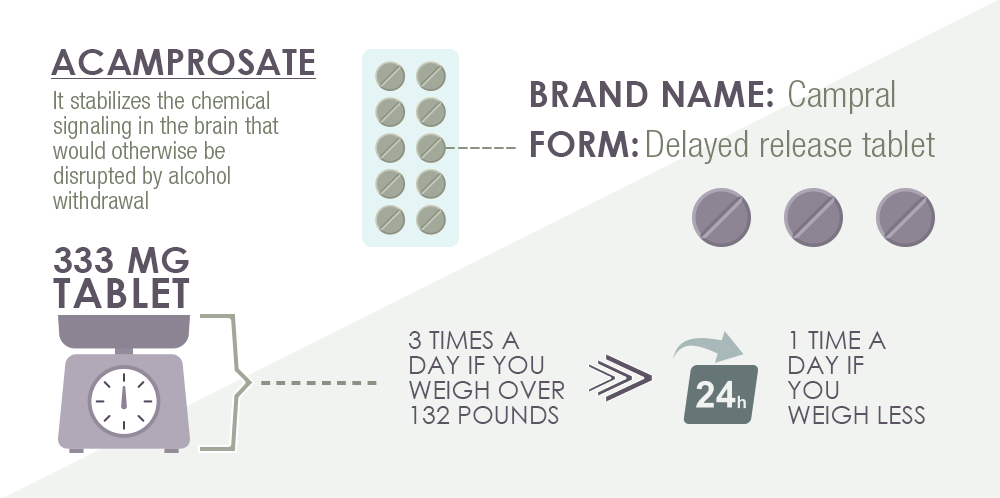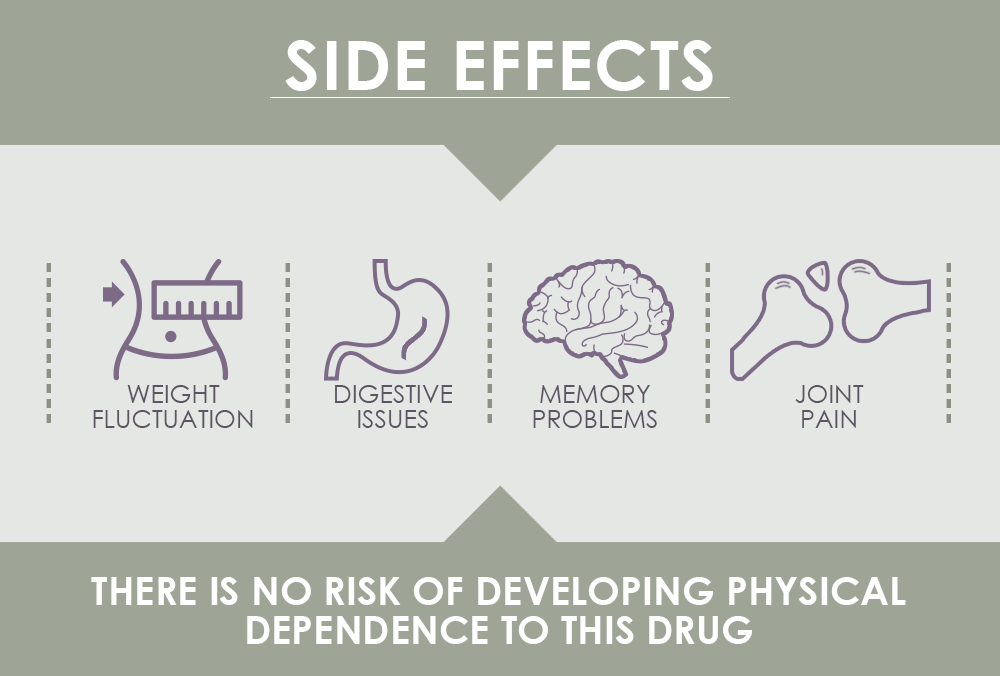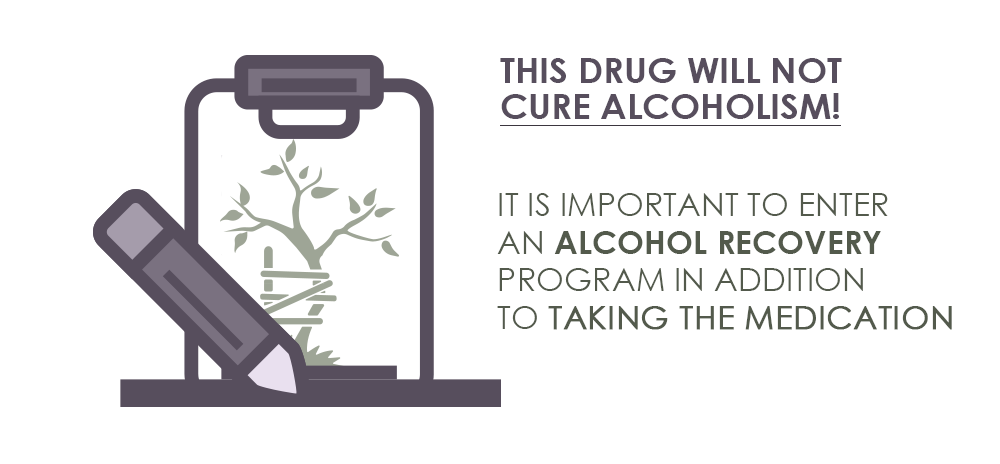Location
Our Seattle Location
Northpoint Seattle’s outpatient treatment program is located in beautiful Seattle, Washington, and we work to help the surrounding communities.
- Seattle
2111 N Northgate Way Suite 101,
Seattle, WA 98133, United States
The use of Acamprosate or Campral has shown to be effective in treating alcohol addiction. It’s possible that you are an alcoholic, and you have questions about using this alcoholism medication. Maybe you’ve tried other recovery methods and found them to be lacking. You can’t help but wonder if Campral might work for you.
It’s important to get all the facts about drugs like Campral and Acamprosate before making a decision about your treatment. Here, you’ll find lots of great information that may be helpful as you consider your next steps in treating alcoholism.

Campral is an alcoholism medication that also goes by the generic name, Acamprosate. This drug has been approved to help people stop drinking alcohol. Both Campral and Acamprosate come in a delayed release tablet. This allows the medication to be released into the body a little at a time.
This is important to keep in mind. If you have not been drinking for quite some time, Acamprosate might not be the medication for you.
The Acamprosate manufacturer states that it’s best to start this drug once you have stopped drinking. Waiting too long could put you too far into alcohol withdrawal. At that point, other treatment possibilities may need to be explored.


Acamprosate has been FDA approved to treat alcoholism. However, there is speculation that it may also work for people who are addicted to other drugs. For example, there are some medications that will help with both alcohol addiction and opiate addiction. It is possible that this drug might work the same way. Still, it has not been FDA approved for this use. Some doctors may prescribe it off-label for opioid addiction.
Many people who have taken Acamprosate sing its praises as a great drug for alcoholism. They report less cravings when using this medication, and reduced alcohol intake overall.
Most people will take two Campral 333mg tablets (for a total of 666mg) three times per day. However, Campral dosage amounts are solely determined by an individual’s weight. People who weigh less than 132 pounds would only need two doses per day.
This can help to curb tolerability of the medication. Some patients are only started on half their normal daily dosage of Acamprosate. Their doctors may increase it slowly, over a period of weeks, until the full desired dosage of Campral is reached.
Additionally, Campral should be started as soon as a person stops drinking alcohol. There is no need to wait until alcohol withdrawal has stopped. If the individual relapses, the medication should not be discontinued.
Acamprosate works in the body by normalizing brain activity after alcohol use has stopped. It works in the glutamate and GABA neurotransmitter systems. This is known as the Campral mechanism of action. As a result, people experience diminished cravings for alcohol when using Acamprosate.
Also, it’s important to note the additional benefits of Campral for alcoholics. Stopping the use of alcohol can be taxing on both the body and the mind. It’s hard for alcoholics to stop drinking, even with the best possible support. Acamprosate can make the quitting experience much more pleasant. It helps to minimize physical distress and emotional discomfort that many recovering alcoholics face.
For someone seeking alcohol recovery, Campral might seem like a blessing. For many people, it really is. However, it’s important to get additional support as well. Alcohol cessation is difficult, and it’s not accomplished by medication alone. Alcohol rehab is generally recommended for anyone who uses Campral.
Alcohol treatment can aid in the recovery process in so many different ways. It will allow people to work through the issues that may have led to their alcohol addictions. It will also provide them with the additional help they need to stay off alcohol long-term.
People who want to begin taking this drug often want to know, how long does Campral take to work?. Unfortunately, this is not a “quick fix” type of medication. It does take some time for Acamprosate to build up in your system. Many people find that they start to feel the effects of it after about a week, or so. For others, it may take a bit longer. Although it can take some time to start working, research shows that this is time well spent. Once Campral does begin working, it is very effective.
Take an in-depth look into recovery topics with our amazing, up-to-date recovery guides.
Addiction Guides
Everyone reacts differently when they start taking Acamprosate. It’s important for you to know what side effects you should expect to experience. Many may be concerning for you. For instance you may wonder, does Campral cause weight gain?. You may also be curious about whether or not Campral side effects will go away. It’s important to get these questions answered.
Fortunately, many of the side effects will eventually go away with continued use of Campral.
Campral and alcohol should not be taken at the same time. After all, this is a medication with a goal of getting you to stop drinking alcohol entirely. However, drinking alcohol while taking Campral won’t have any devastating effects on you.
You may be familiar with other medications for alcoholism that do cause severe interactions when alcohol is consumed. One of these is Antabuse. Drinking while on that medication will make you very sick. However, there is no such Campral and alcohol interaction.
The fact that there are no severe Campral side effects with alcohol makes this medication highly desirable. Even so, people who use it should abstain from drinking.

The good news is that Campral is not a known drug of abuse. Taking Campral is not going to lead to an addiction. This is often enough to cause doctors to prescribe it regularly for those who suffer from alcoholism. Other medications may have addiction risks when taken by someone who is prone to addiction. However, this one does not.
This means that you don’t have to worry about going through Campral withdrawal when you stop taking it.
Most Campral reviews state that this medication makes people feel really good. They are able to function more normally, and not think about alcohol all the time when they use it.
There are some who report not feeling any effects of Acamprosate, even after taking it for a week or more. This could possibly mean that they are not on the right dosage. Others have reported that it makes it difficult for them to sleep at night.
When using Acamprosate, if you do attempt to get drunk, intoxication effects will be limited. This is one concern with this medication. It is possible to drink too much in an attempt to feel the effects of the alcohol. Because of this issue, alcohol poisoning may be a risk for some people.
It is always recommended to talk with your doctor prior to stopping any medication. You should get his or her approval prior to stopping the use of Campral. Again, this drug does not cause any withdrawal symptoms when it is stopped. Therefore, stopping Campral suddenly probably isn’t something you need to be concerned about.
Even so, it is possible that you are not ready to stop using it, for fear of the return of alcohol cravings. This might be a concern that your doctor may have as well. You can help to alleviate this by going to some type of alcohol treatment. An IOP program or even Alcoholics Anonymous can assist with this part of your recovery.
One hesitation many people have when starting any medication is the price. This may also be true for you, and you’re wondering about Campral’s cost.
At most pharmacies, you can buy Campral/Acamprosate 333mg for around $287. This will get you a month’s supply of 180 tablets if you are taking two, three times per day. If you’re interested in the Acamprosate discount, you may be able to save some money by going that route. Acamprosate is the generic version of this drug, and so, it usually tends to be cheaper. Your health insurance company may also be able to help you minimize your out of pocket costs.
There are also other ways that you can save money when you purchase Campral. Quite often, you can find a Campral manufacturer coupon available online. Other websites may offer additional discounts through their Acamprosate coupons. It’s definitely worth it to find out what is being offered to see if you can save when purchasing this drug.
Take one of our addiction quizzes to find out if you or someone you care about needs help today.
Like many people, you may be wondering, is Campral a placebo, and will it really work for me?. Many people have this same concern. They worry because it doesn’t cause any adverse effects when you take it and drink alcohol. They feel that this means that it really doesn’t work.
We want to assure you that it does work, and it is in no way a placebo. Of course, Acamprosate isn’t right for everyone, just like other medications are not right for everyone. If it helps you feel better, consider visiting a Campral forum to find out more about others’ experiences with this medication. You may find that it’s just what you need to stop drinking.
You should be applauded because of the fact that you’ve chosen to stop drinking. It was most likely very hard for you to make that decision. It is our hope, here at Northpoint Seattle, that we’ve been able to supply you with what you need. If you’re considering getting started with Campral Acamprosate, please talk with your doctor. He or she may be able to assist you, or have other options that might be better for you.
Even though Campral has its obvious benefits, it should never be considered to be a “wonder drug.” It is an excellent tool that should be used as a part of the recovery process. Other tools that will help you include individual counseling sessions and group therapy. These are so important in order for you to be successful long-term.

Our admissions coordinators are here to help you get started with treatment the right way. They'll verify your health insurance, help set up travel arrangements, and make sure your transition into treatment is smooth and hassle-free.
[DirectNumber] Contact Us